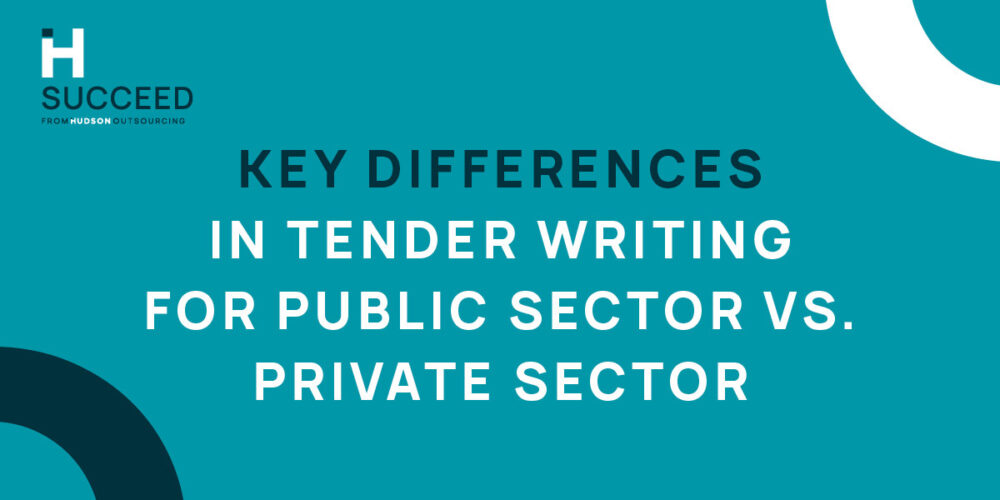Legal Services Tenders
The procurement of legal services is a critical aspect of the public and private sectors in the UK, with legal service tenders playing an essential role in ensuring fair competition, transparency, and efficiency.
This blog aims to provide a comprehensive guide to legal service tenders, discussing their importance, the various types of tenders available, and the steps involved in the procurement process. By the end of this blog, you should have a solid understanding of how legal service tenders operate and how they contribute to the efficient functioning of the legal system in the UK.
The Importance of Legal Service Tenders
Legal service tenders are invitations to law firms and legal professionals to submit proposals for providing specific legal services. They play a pivotal role in ensuring that public and private entities can procure the best possible legal advice at a competitive cost. Tenders help create a level playing field for all potential suppliers, promote transparency in the decision-making process, and ensure value for money for the procuring organisation. Additionally, they foster innovation and encourage new market entrants, which ultimately contribute to the overall growth and development of the legal industry.
Types of Legal Service Tenders
Legal service tenders can be broadly classified into three categories:
- Public Sector Tenders: These tenders are issued by public authorities such as government departments, local councils, and public bodies. Examples of public sector legal service tenders may include the provision of legal advice on employment law, tax law, and public procurement.
- Private Sector Tenders: Private sector tenders are issued by private organisations, such as corporations and non-profit entities. These tenders may involve a wide range of legal services, including corporate law, intellectual property, and litigation support.
- Framework Agreements: These agreements, also known as panel arrangements, involve the pre-qualification of a select group of suppliers to provide legal services over a specified period. Procuring organisations then call upon these pre-qualified suppliers to provide legal services as and when required, reducing the need for a separate tender process for each legal requirement.
The Legal Service Tender Process
Public vs Private Sector Tenders
In the UK, there are two primary categories of legal service tenders: the public sector and the private sector. Public sector tenders are issued by governmental bodies and agencies, while private sector tenders are released by private companies and organisations. Although the tendering process is similar for both categories, public sector tenders are subject to stricter regulations and requirements, such as adherence to the Public Contracts Regulations 2015.
Tender Notices
Tender notices provide information about available tenders, including the type of legal services required, the contract duration, and the submission deadline. The tender notices are published in various sources, such as the Official Journal of the European Union (OJEU), Contracts Finder, and Tenders Electronic Daily (TED). Private sector tender notices can also be found on company websites or through procurement portals.
Pre-Qualification Questionnaires (PQQs) and Selection Questionnaires (SQs)
Before submitting a full tender proposal, law firms may be required to complete a Pre-Qualification Questionnaire (PQQ) or a Selection Questionnaire (SQ). These questionnaires assess the firm’s capabilities and financial stability, ensuring that only qualified firms proceed to the tender stage. PQQs and SQs typically request information on the firm’s experience, technical capacity, financial standing, and compliance with legal and regulatory requirements.
Invitation to Tender (ITT)
Once a firm passes the PQQ or SQ stage, they will receive an Invitation to Tender (ITT). The ITT outlines the specific requirements of the legal services contract and provides guidance on the format and content of the tender submission. Firms must follow these guidelines closely to ensure their bid is compliant and competitive.
Tips for Submitting a Winning Legal Service Tender
Understand the Client’s Needs
The key to a successful tender submission is understanding the client’s needs and demonstrating how your firm can fulfil them. Review the tender documents carefully, and identify the specific legal services the client requires, their objectives, and any potential challenges. Tailor your proposal to address these needs and provide evidence of your firm’s experience and expertise in handling similar cases or projects.
Provide Clear and Concise Responses
Tender evaluators often review numerous submissions, so it is crucial to make your proposal easy to read and understand. Use clear, concise language, and avoid jargon or overly technical terms. Organise your submission with headings and subheadings, and use bullet points or numbered lists where appropriate. Ensure your responses directly address the requirements set out in the ITT and avoid providing irrelevant information.
Demonstrate Value for Money
In addition to expertise and experience, clients are looking for legal service providers that offer value for money. Outline your pricing structure and provide a transparent breakdown of costs, ensuring that your fees are competitive and reasonable. Highlight any added value your firm can offer, such as innovative approaches, cost-saving measures, or supplementary services that are included in your fees.
Highlight Relevant Experience and Expertise
To build confidence in your firm’s ability to deliver the required legal services, provide evidence of your experience and expertise. Include case studies, examples of past projects, and testimonials from satisfied clients. Focus on showcasing your firm’s experience in the specific areas of law relevant to the tender, and demonstrate a track record of success in similar cases or projects.
Emphasise Your Team’s Qualifications and Skills
The strength and expertise of your legal team are critical factors in a successful tender submission. Provide detailed information on the qualifications, skills, and experience of the team members who will be working on the project. Highlight any relevant accreditations or certifications and demonstrate how the team’s combined expertise will deliver the best possible outcome for the client.
Showcase Your Firm’s Commitment to Quality
Clients want to work with law firms that are committed to delivering high-quality legal services. Outline your firm’s quality management processes and any relevant certifications, such as ISO 9001. Explain how your firm ensures consistent quality across all aspects of its work. This means from client communication and case management to legal research and documentation.
Legal service providers must adhere to strict regulations and compliance requirements, and clients need assurance that your firm can manage these risks effectively. Outline your firm’s risk management processes, and provide evidence of your compliance with relevant regulations, such as data protection, anti-money laundering, and professional indemnity insurance requirements.
Pay Attention to Presentation and Formatting
The presentation and formatting of your tender submission can make a significant difference in the evaluator’s impression of your proposal. Ensure your submission is professionally formatted, with consistent fonts, headings, and numbering. Proofread your proposal carefully to eliminate any errors, and consider having a colleague or external proofreader review the document to provide an objective perspective.
Submit Your Tender on Time
Failing to submit your tender by the specified deadline can result in automatic disqualification. Allow plenty of time to prepare your submission, and ensure you have a clear understanding of the deadline, any required formats, and the method of submission. Aim to submit your tender well before the deadline to avoid any last-minute issues or technical difficulties.
Let’s sum it up!
Submitting a winning legal service tender requires careful attention to detail, a thorough understanding of the client’s needs, and a demonstration of your firm’s expertise and value. By following the tips outlined in this blog post, you can enhance your chances of securing valuable legal service contracts and expanding your firm’s client base. Stay up to date with the latest tender opportunities, and invest time and resources into crafting high-quality, competitive submissions.
How we can help!
Tender Writing
Once you’ve found the perfect bid for your business, send it our way. Our Bid Writers can take care of the whole thing for you they’ll even submit it on your behalf. They’ll let you know what they need from you, providing you with a full Tender Writing breakdown.
Tender Ready
Our Tender Ready 4-week programme is perfect for businesses that have never tendered before. A Bid Writer will work with you to ensure you have everything in place to tender successfully. Tender Ready offers your business:
- A 12-month subscription to one Hudson Discover
- Access to Global Bid Directors and Senior Bidding Professionals.
- An Organisation-wide Bid library, including 3 case studies, 5 CVs and policies.
- Additional flexible benefits.
Tender Improvement
If you’ve been tendering but aren’t seeing success from your current efforts, our Tender Improvement package can help. Our Bid Team will assess your previous responses and tender documents. They will work with you to improve for future submissions. This package includes a 12-month subscription to a Hudson Discover portal and additional tendering development services.
Tender Mentor
If you’ve written your tender response and need it double-checked for errors, Tender Mentor can help. A Bid Writer will proofread your work for any inconsistencies, grammar, or spelling mistakes. They will also ensure it’s in line with the specification before you submit it. This is a great way of improving your skills and understanding of how to polish your tender.
Contact us:
Contact us to find out how we can help your business SUCCEED!
Additional support:
Do you only require assistance with PQQs or SQs? We can help!
Submit the relevant information regarding the work you need, and we will provide a quote for the work agreed upon.
We provide support at all levels of the bid writing process, so if you simply need it proofread before you submit it, we can also help with that!
Upgrading to Discover Elite can optimise your tendering efforts!
Our two new time-saving tools can improve competitor awareness and success rate when bidding for a contract:
The Ultimate Time Save Package (for those on the go!)
- Five tender breakdowns per month.
- Annual subscription to two sector-specific portals.
- Dedicated account manager.
The Become a Pre-Bid Master package
- All of the above.
- Seven tender breakdowns per month.
- Bid Strategy delivered by a Senior Bid Manager (minimum five years experience). Our Global Bid Director will manage the bid strategy.
Our other divisions:
Wanting to impress a buyer? Our creative content agency Vocal is always on hand to help!
Our Vocal team are never afraid to be heard – we’re a loud bunch!
From micro-businesses to large organisations, we provide ways to make your business stand out from the crowd. We can transform your bid into a professionally designed tender document!
Vocal specialises in:
Our online virtual learning environment for Education, Enterprise and Home Learners is currently being used to power our platforms – Tender VLE and Procure VLE (Coming soon).
We believe in learning at your own pace, wherever you are!
Find more helpful tips and advice in our blogs. We cover topics including:








